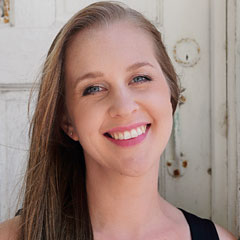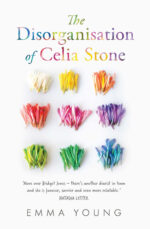Why I’m giving half of royalties from my new book to a charity you may never have heard of

An article by Emma Young
I am not a moral authority. But I am trying to do something moral, something better.
That is: give fifty percent of my royalties from my new novel, The Disorganisation of Celia Stone, to Beyond Zero Emissions (BZE).
This is an Australian think tank that provides large-scale solutions for switching whole communities to green energy and advocates the positives of such change to Australian government policymakers.
You may think that most authors don’t make much money from royalties, and you would be right. Instead, financial forward planning, hard saving and constant small sacrifices over many years offset the income I have lost through taking time away to write fiction.
It is nevertheless not an insignificant choice for me. Does it hurt to give away this money that represents so much time and effort and could help me so much? Of course it does. But action on climate change, from all of us, is imperative and it is urgent.
We cannot take away the power of the major fossil fuel companies. But we can question them, hold them to account, communicate our raised expectations, and empower the organisations providing a counter to their PR armies and their direct influence in our state and federal governments.
Through my choice, I hope to inspire people to realise that they can take tangible action, even if it requires a sacrifice. A level of personal hardship far outweighed by what we are asking our children to sacrifice if we do nothing.
Second, I hope to educate people about the action I will be taking, about the power of activism and about the positive, necessary, effective work of such advocates as Beyond Zero Emissions.
Third, I hope my money will directly aid this work.
Why did I choose to support BZE? Obviously, I want to make sure my money is not wasted. So I consulted Giving Green, part of global research organisation IDinsight, which identifies the top ‘evidence-based, cost-effective, and high leverage’ climate charities in the world and Australia. Giving Green receives no funding from, and has no formal relationship with, any of the organisations it studies or recommends.
I focused on the top Australian charities because I believe Australia can and should be a world leader in this space, with its first-world society, high emissions per capita, high levels of fossil fuel exports and weak, timid emissions reduction goals and policies.
Of the three charities named as most effective, BZE has the most political and green energy-focused agenda. And my years of both creating and observing environmental journalism have convinced me that the best way to get real change is from the government transforming Australia’s policies and outdated energy systems.
BZE’s major campaign involves creating detailed plans, and lobbying for funding, to transform the nation’s most famously fossil-fuel dominated industrial areas into renewables-powered precincts. This, along with its secondary focus areas, struck me as an approach that was both practically and symbolically powerful. Action and also story.
Stories about win-win outcomes will beguile governments that want money and popularity.
Stories about win-win outcomes make the population feel hopeful.
In my work, I see how most news consumers are all but ignoring reports about complex problems in general, and climate news in particular. It is not surprising that they do so, I imagine because it makes them feel helpless and paralysed. I believe the good stories must start to happen, and to be talked about, as well as the scary ones. That is what will help create the momentum we need.
Reading that BZE was beginning a move into my home state of Western Australia – extending its on-ground presence to WA as a ‘critical region’ and focusing on how to create zero-emissions manufacturing precincts for Kwinana, Collie and Port Hedland – was what clinched my decision.
I have recently been reading Johann Hari’s Stolen Focus, learning about Ben Stewart, former head of communications at Greenpeace UK and his involvement in setting up a campaign that led the UK to finalise plans to shut down existing coal mines and disallow new ones. A position that Australian parliamentarians still cannot stomach despite global alarm bells clanging.
Stewart says the first step to building a movement is to create a ‘consciousness-raising breakthrough cultural moment’. The best tool: a ‘site battle’ – a non-violent localised fight symbolising the wider struggle. Think Rosa Parks sitting down on the bus in Alabama.
Stewart’s UK campaign included a protest in which abseiling activists spray-painted the side of a huge power station with news of climate-related disasters. During their trial, lawyers successfully argued they were acting to avert a fossil fuel-caused climate emergency. They were acquitted, the case made global headlines, and the British government began shuttering mines.
Some similar, though smaller in scale, activist activities in fossil fuel-loving Perth have gained media attention, particularly of late.
Are they creating momentum? Generally negative public reactions to the news reports suggest not, but it may one day become apparent that they were laying the groundwork for the one site battle that broke through.
Is me giving money to a climate charity creating momentum? I can’t know. But it is all I can think of to do next, and I want to be able to look my son in the eye one day and tell him I did everything I could.
If I can bolster an organisation that is in the ears of our parliamentarians, perhaps it will inspire more people to take whatever action they can.
I know it’s a rough time for many people financially, but many others are doing fine, and only rougher times will come if we stand by and do nothing. Instead, we can choose to hope that caring is contagious, and that the cultural transformation in which we finally fight our own inertia – and win – is just around the corner.



